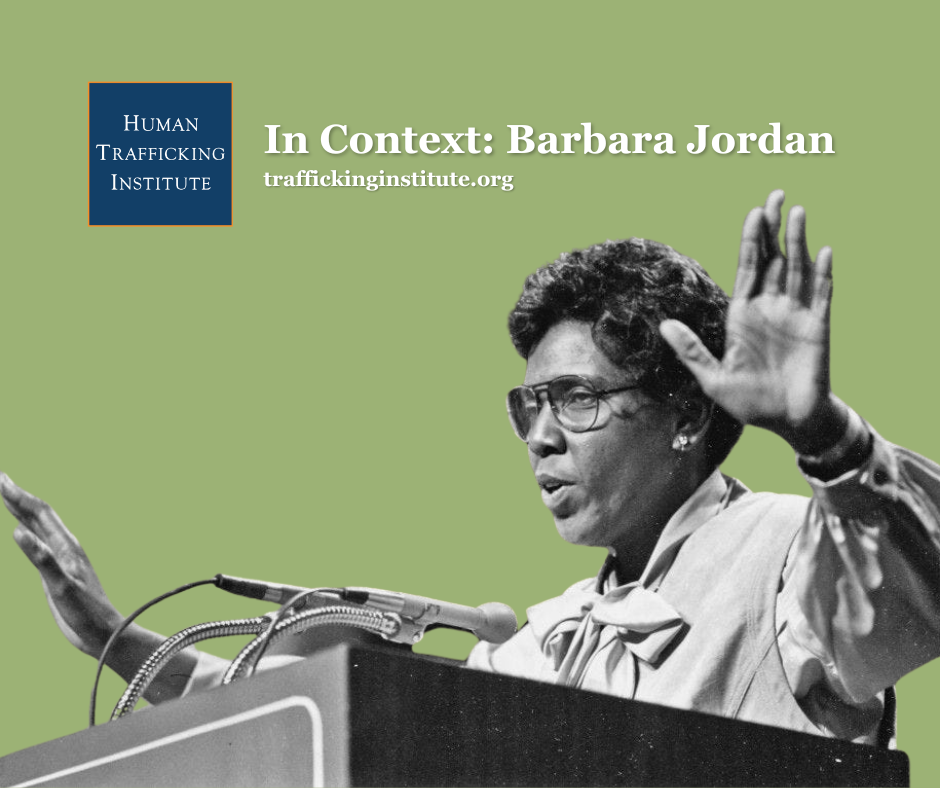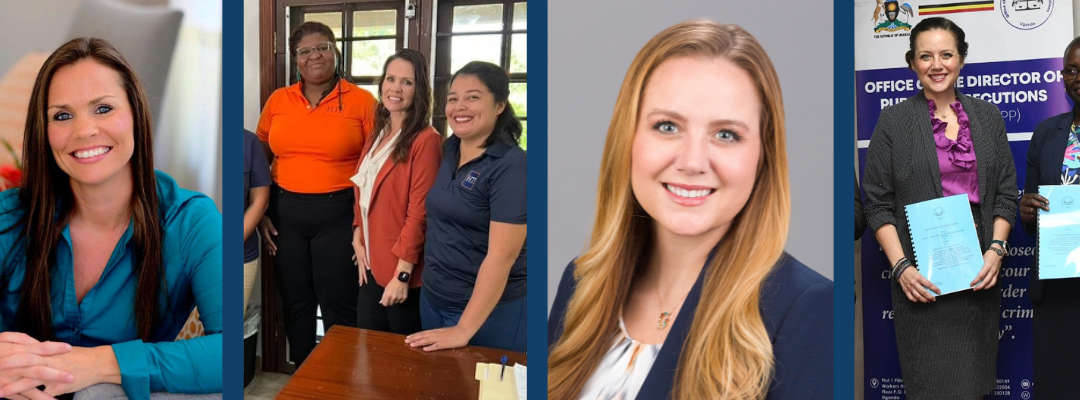Born in Texas during 1936, Barbara Jordan, the first black congresswoman from the South, grew up during the Jim Crow Era. Barbara was known for her tenacity, determination, and oratory skills since she fought zealously for civil and human rights. Even during her youth, Barbara demonstrated her skill in public speaking by winning a national debate contest in 1952 as a high school student. She continued to hone her advocacy skills at Texas Southern University by becoming a member of a debate team. After graduating from college in 1956, Barbara finally attended her first unsegregated school, Boston University Law School, as one of only two women in her cohort. The timing of her law school career is especially noteworthy. Barbara Jordan attended law school a mere ten years after the U.S. Supreme Court’s decision in Sweatt v. Painter outlawed “separate but equal” classes at the University of Texas Law school.
After completing law school and passing the bar, Barbara began practicing law in her hometown, Houston, Texas. Barbara began her career in politics by campaigning for democrats during the 1960 Kennedy presidential election. During a time of resurgence by the Ku Klux Klan and public lynching, Barbara Jordan made history in 1966 by becoming the first ever Black Woman to be elected to the Texas Senate. As a senator, Barbara’s work focused primarily on anti discrimination efforts, establishing a minimum wage for farmworkers, and working with the Fair Employment Practice Commission. Barbara remained a senator until she was elected to the U.S. House of Representatives in 1972. As a Representative, she continued with her civil rights efforts by improving the Voting Rights Act. Barbara made national headlines as a powerful public speaker due to her opening remarks in the 1974 Nixon impeachment hearings. After a 13 year career in politics, Barbara retired in 1979 but continued inspiring the public as a professor of public affairs at the University of Texas.
Sometime during her political career, which spanned from 1966-1979, Barbara Jordan gave this powerful quote: “If the society today allows wrongs to go unchallenged, the impression is created that those wrongs have the approval of the majority.” After experiencing segregation and racism in the deep south for her entire life, Barbara Jordan spoke this quote with the historic background of racial injustice and inequality against Black individuals in America. Until 1954, when the Supreme Court ruled that school segregation violated the equal protection clause, the wrongs of Plessy’s “separate but equal” doctrine had persevered unchallenged by the white supremacist society of the south. Even today, the remnants of sun-down towns, cities that excluded non-white people through intimidation and violence once the sun set, still exist in rural areas of Texas. It has taken decades of action by proponents of the civil rights movement to challenge the wrongs of racism in the south, to ensure that the majority will never be complicit with racism or white supremacy again.
Barbara Jordan’s quote, while still relevant in the civil rights context, also resonates with the Human Trafficking Institute’s anti-trafficking efforts both domestically and internationally. Prior to HTI’s involvement in Uganda, there was little to no prosecution of human trafficking in the country. Because the wrongs of trafficking went mostly unchallenged by the Ugandan justice system, sex and labor trafficking were a means for individuals to benefit through the exploitation of others. Through HTI’s involvement in training, creating specialized teams, and utilizing experienced trafficking prosecutors, the legal sphere in Uganda has shifted drastically. In 2021, the Ugandan prosecutor’s office made history by convicting a child trafficker to its first ever life sentence. Now, the wrongs of trafficking are being challenged by prosecutors all over Uganda, sending the message that Ugandans will not tolerate the travesty of human trafficking.




